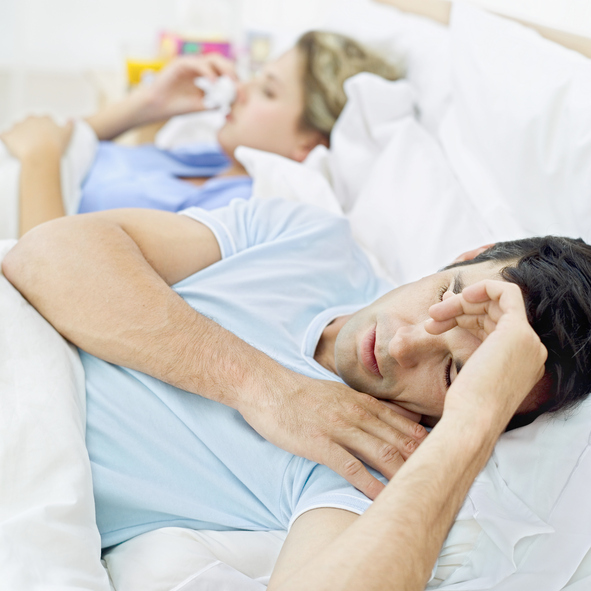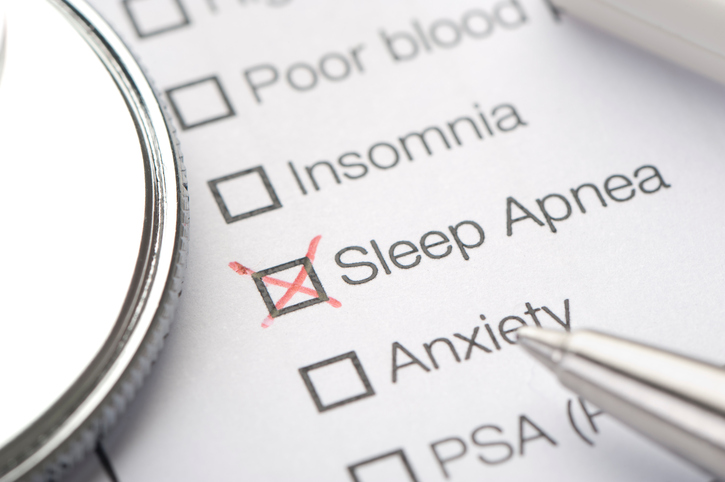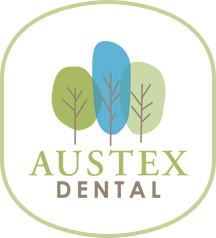Obstructive Sleep Apnea Treatment in Austin
Austex Dental is a leader in obstructive sleep apnea treatment here in Austin, TX. We have the expertise and understanding to ensure we diagnose and treat your obstructive sleep apnea condition efficiently and effectively to have you back to a full night’s sleep as soon as possible!
Contact Us Jump to FAQs
Restless Nights
Lack of sleep is never fun, but when you know exactly what’s causing your lack of sleep, and nothing seems to be working; it’s even worse! With Obstructive Sleep Apnea treatment, we treat and solve the following:
- Snoring
- Fatigue
- Restlessnes

Additional Symptoms Resolved
Below is a list of the other symptoms that obstructive sleep apnea treatment can resolve:
- Dry Mouth
- Headaches
- Trouble Concentrating
- Overall Feeling of Malaise

Obstructive Sleep Apnea in Children
Obstructive Sleep Apnea not only affects adults, it affects children as well. Contact us for an appointment as soon as possible if your child is exhibiting any of the symptoms below:
- Excessive Night-Sweats
- Bed-Wetting
- Choking and/or Excessive Drooling
- Ribcage Moving Inward When Exhaling
- Bruxism (Teeth Grinding)
- Absences of Breathing
- Unusual Sleeping Positions (Sleeping On Hands and/or Knees With Hyperextended Neck)
- Restlessness

Obstructive Sleep Apnea Risk Factors
There are several factors that increase your risk of developing OSA (Obstructive Sleep Apnea):
- Overweight/Obese
- Thick/large Neck
- Small Airways in Nose, Throat, and Mouth
- Enlarged Tonsils Due to Natural Causes or Inflammation
- Large Tongue
- Deviated Septum
- Older Male (affects this demographic prominently)
- Smoking
- Diabetes
- High Blood Pressure
- Preexisting Heart Conditions

Testing & Diagnosing
When visiting Dr. Ding, you’ll be examined for the initial symptoms listed above and also be examined for the following to better understand your case of Obstructive Sleep Apnea:
- Level of Air Flow
- Blood Oxygen Levels
- Eye Movements
- Heart Rate
- Muscle Activity
- Breathing Patterns
Sleep Apnea FAQ
Is sleep apnea dangerous?
Sleep apnea is dangerous because it can increase your risk of other serious health issues. For example, sleep apnea is connected to high blood pressure, heart disease, and type 2 diabetes.
What does a sleep apnea test reveal?
A sleep apnea test, or sleep study, monitors the stages and cycles of your sleep along with your heart rate, blood oxygen level, and breathing patterns. Those with sleep apnea will exhibit pauses in breathing, drops in oxygen level, and frequent awakenings.
What does sleep apnea treatment involve?
There are different sleep apnea treatment options depending on the severity of your condition. One of the most common is CPAP therapy. CPAP stands for Continuous Positive Air Pressure. With this treatment, patients wear a mask that’s connected to a CPAP machine while they sleep. The machine emits steady air pressure to keep their airway open.
Oral appliances are another type of sleep apnea treatment, often used by patients who either can’t or don’t want to use a CPAP machine. These custom-made dental devices bring the lower jaw forward slightly and prevent the tongue from falling backward in order to keep the airway open.
What’s the difference between obstructive sleep apnea and central sleep apnea?
Obstructive sleep apnea is a condition where your airway is blocked while you sleep. This blockage could be caused by a number of things including relaxed tissues and muscles, your sleeping position, or the presence of fatty tissue in the throat area. Central sleep apnea, on the other hand, is when your brain doesn’t tell your muscles to breathe. This failure in signaling can be caused by neurological issues, certain medications, and more.
What’s the difference between sleep apnea and snoring?
A common sign of obstructive sleep apnea is loud and frequent snoring, but not all people who snore have sleep apnea. It’s important to speak with a professional and get tested so that you can determine if treatment is necessary.
Contact Us Today


